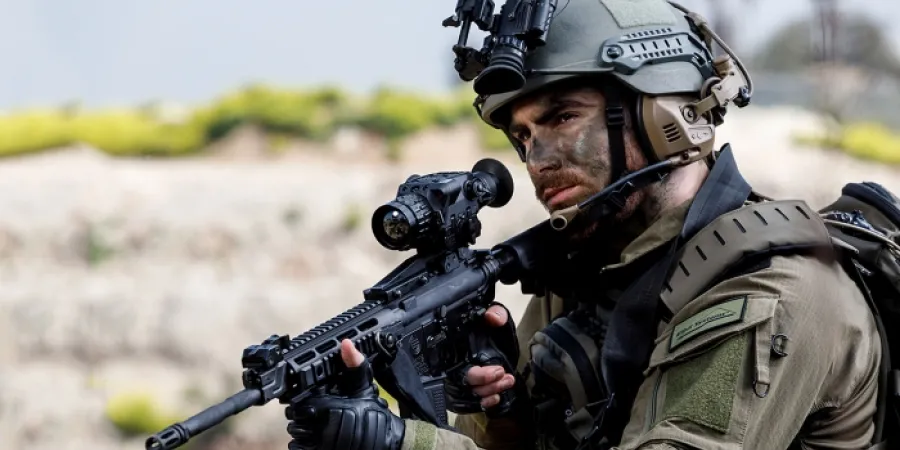U.S. Marine Corps selects Elbit rifle sight for prototype development program
The multispectral device provides enhanced target acquisition and engagement at extended ranges
Eyal Boguslavsky
| 08/09/2020
Israel's Elbit Systems announced Tuesday that the United States Marine Corps selected Elbit Systems of America subsidary Kollsman Inc.’s solution for a multispectral, clip-on weapon night sight, allowing marines to engage in day and nighttime operations at extreme stand-off distances. The selection, part of Phase II of the Integrated Clip-on Advanced Targeting Sight (ICATS) program, will require the company to design, build and test two sophisticated ICATS prototypes for the USMC over the next year.
According to Elbit America, the ICATS solution is optimized for USMC scout snipers and reconnaissance marines so they may acquire targets and engage at extended ranges. The solution clips onto the marine’s weapon and provides critical information to the user, even in low-light or inclement weather. The ICATS is configured to provide simultaneous imaging across extended ranges, without adding considerable weight to the marine’s weapon.
“This selection by the U.S. Marine Corps shows the strong partnership we have with the Marines, as well as our expertise creating technology that benefits warfighters in the field,” said Ridge Sower, vice president of Ground Combat and Precision Targeting at Elbit Systems of America. “With our ICATS solution, Marines can successfully complete their missions – no matter the conditions – while remaining as safe as possible.”
Elbit America added that the ICATS solution builds on the company’s successes in offering the U.S. military other precision targeting capabilities, such as the Next Generation Hand-Held Targeting System for the USMC and the Multi-Domain User Sensor Architecture targeting system for the U.S. Army.
The multispectral device provides enhanced target acquisition and engagement at extended ranges
Israel's Elbit Systems announced Tuesday that the United States Marine Corps selected Elbit Systems of America subsidary Kollsman Inc.’s solution for a multispectral, clip-on weapon night sight, allowing marines to engage in day and nighttime operations at extreme stand-off distances. The selection, part of Phase II of the Integrated Clip-on Advanced Targeting Sight (ICATS) program, will require the company to design, build and test two sophisticated ICATS prototypes for the USMC over the next year.
According to Elbit America, the ICATS solution is optimized for USMC scout snipers and reconnaissance marines so they may acquire targets and engage at extended ranges. The solution clips onto the marine’s weapon and provides critical information to the user, even in low-light or inclement weather. The ICATS is configured to provide simultaneous imaging across extended ranges, without adding considerable weight to the marine’s weapon.
“This selection by the U.S. Marine Corps shows the strong partnership we have with the Marines, as well as our expertise creating technology that benefits warfighters in the field,” said Ridge Sower, vice president of Ground Combat and Precision Targeting at Elbit Systems of America. “With our ICATS solution, Marines can successfully complete their missions – no matter the conditions – while remaining as safe as possible.”
Elbit America added that the ICATS solution builds on the company’s successes in offering the U.S. military other precision targeting capabilities, such as the Next Generation Hand-Held Targeting System for the USMC and the Multi-Domain User Sensor Architecture targeting system for the U.S. Army.



